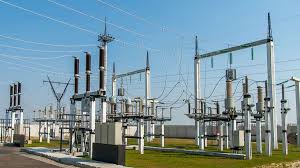BUSINESS

FG TO INTRODUCE COST-REFLECTIVE POWER TARIFFS, PLANS TARGETED SUBSIDIES FOR THE POOR — ADELABU
The Federal Government is gearing up to implement a cost-reflective electricity tariff system as part of broader efforts to address the deep-rooted financial challenges plaguing Nigeria’s power sector.
Speaking on Tuesday at the Mission 300 Stakeholders Engagement in Abuja, the Minister of Power, Chief Adebayo Adelabu, stressed that the move is critical to resolving the staggering ₦4 trillion debt currently owed to power generation companies.
Adelabu explained that much of this debt had built up over time due to the government’s struggle to fully fund electricity subsidies, which were initially intended to keep prices low for consumers.
To tackle this, the minister revealed that the government plans to gradually phase out blanket subsidies across the sector. Instead, it will focus on providing targeted support specifically for vulnerable and low-income Nigerians to cushion the impact of higher tariffs.
“The Federal Government is working out modalities to pay off the existing obligations and ensure that new debts do not continue to pile up,” Adelabu said in a statement.
Highlighting the broader reform agenda, Adelabu outlined key priorities including:
✅ Boosting power generation by reviving idle capacities and adding cleaner, cheaper energy sources to Nigeria’s energy mix.
✅ Upgrading transmission infrastructure to improve grid stability and reduce the frequent collapses that have plagued the system.
✅ Enhancing the distribution network’s performance, through programs like the Presidential Metering Initiative and the World Bank-supported Distribution Sector Recovery Program (DISREP).
The minister also assured Nigerians of the government’s commitment to making the power sector sustainable and attractive for investment, emphasizing that ongoing reforms aim to make the sector both bankable and reliable.
On the Mission 300 initiative — which seeks to provide electricity to 300 million unserved people across Africa — Adelabu disclosed that it would require an estimated $32.8 billion, with $15.5 billion expected from private investors.
With these steps, the Federal Government hopes to finally set Nigeria’s troubled power sector on a firm path to stability and growth.
"This represents a significant development in our ongoing coverage of current events."— Editorial Board









